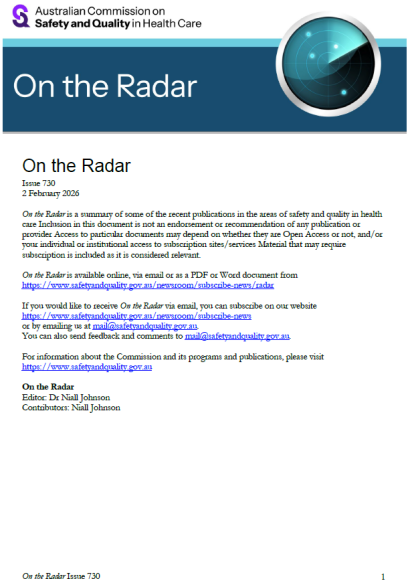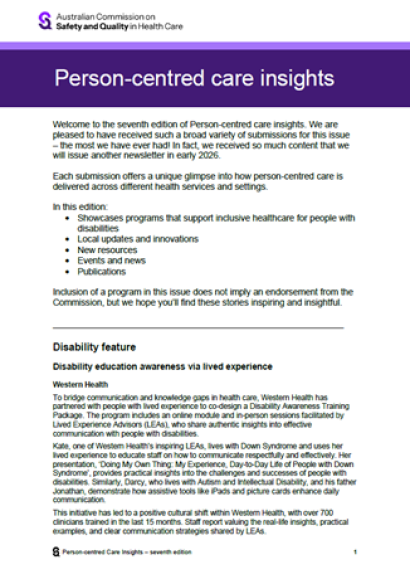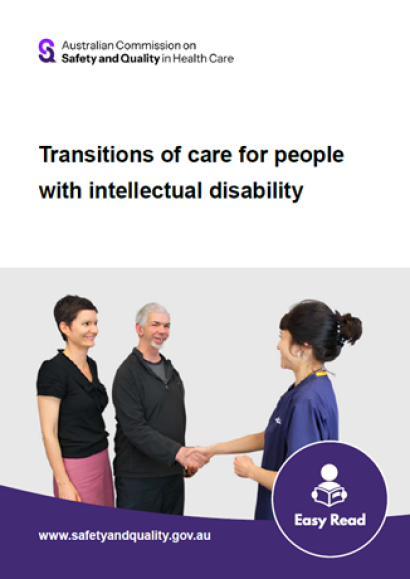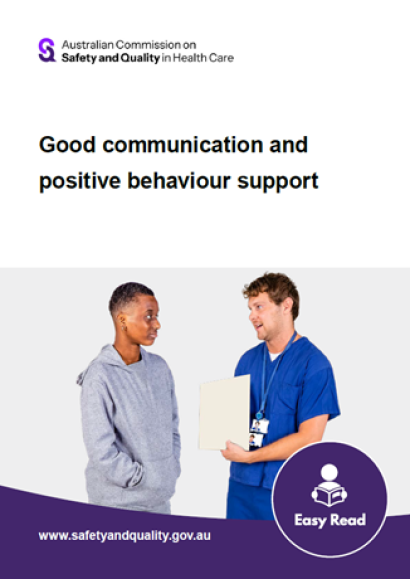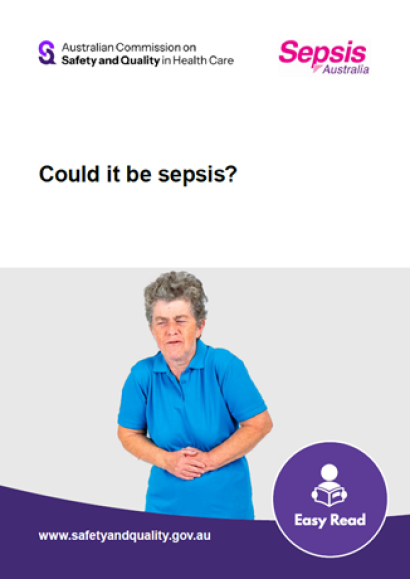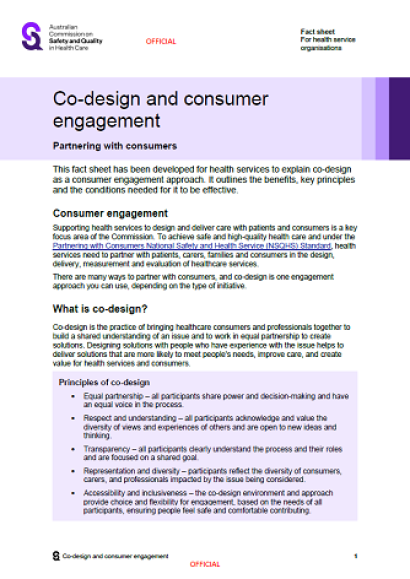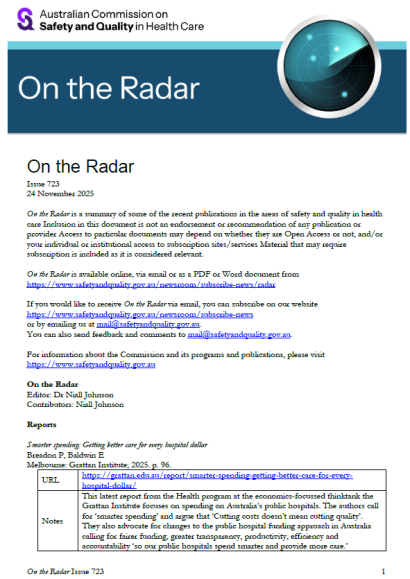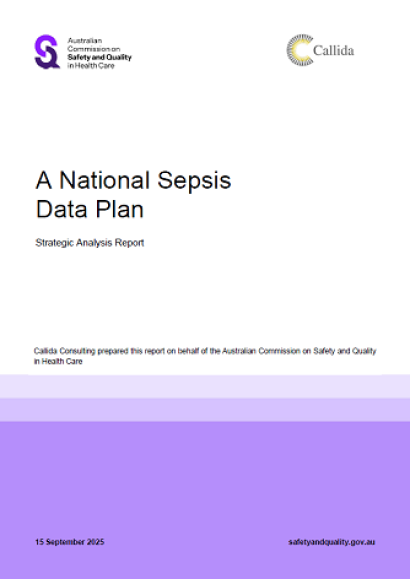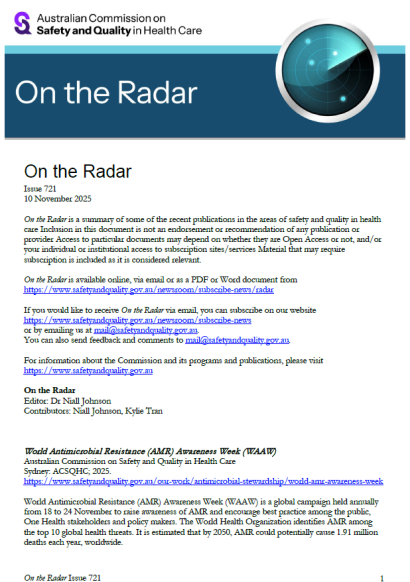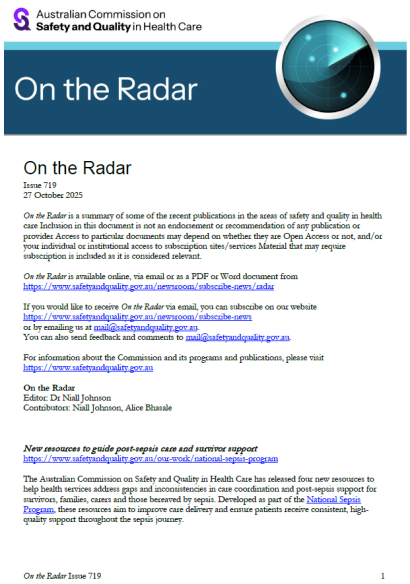The Diagnostic Imaging Accreditation Scheme Advisory Committee provides oversight, expertise and consumer input. Members advise on matters to ensure appropriate quality and safety standards are applied to diagnostic imaging.
Making decisions about health is important but sometimes health information can be hard to understand, so making decisions can be difficult. Ask Share Know will help consumers learn about tests, treatment or care.
The MedicineWise Drs Bag mobile application will be decommissioned at midday AEDT on 10 February 2026.
The MedicineWise mobile application will be decommissioned at midday AEDT on 10 February 2026.
Co-design is an engagement practice that health services can use to meaningfully engage and partner with patients, their families and carers, and the wider community.
In 2016, all Health Ministers recognised that, while states and territories had worked to improve the environment for clinical trials, issues of fragmentation and inefficiency remained that impacted on Australia's attractiveness as a preferred location for clinical trials.
Several resources have been identified which are relevant for improving safe and appropriate use of medicines in people living with diabetes.
Keynote speakers and panellists who presented at the National Medicines Symposium 2025.

